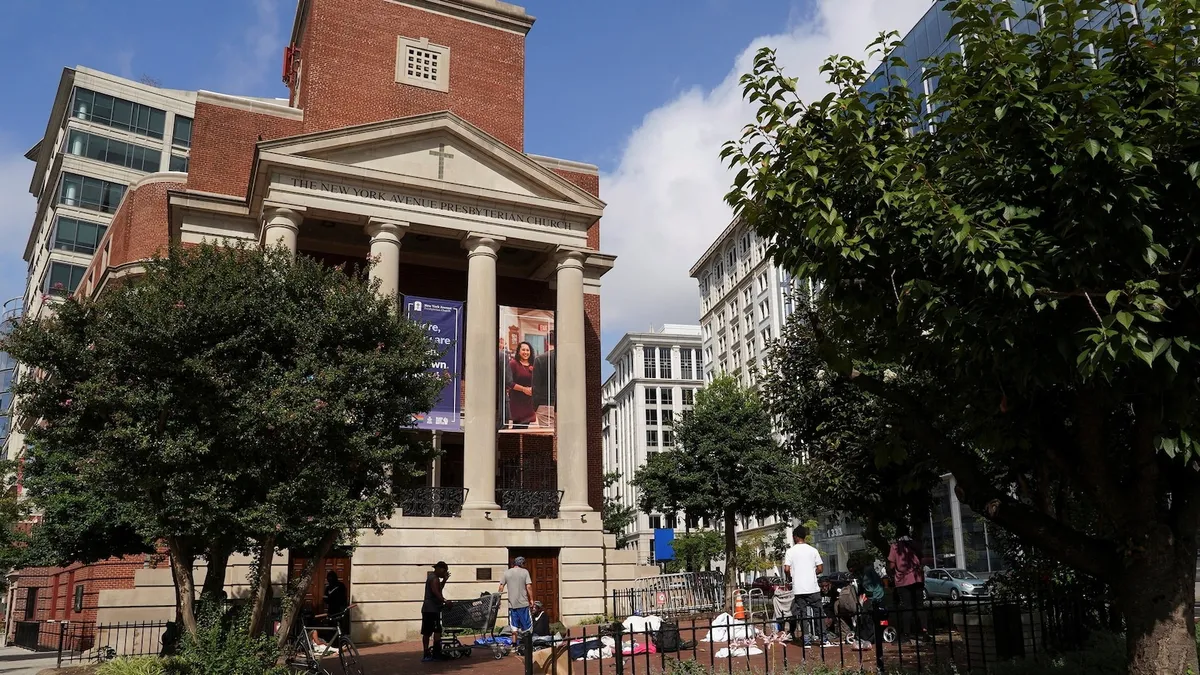
This week, President Donald Trump announced a controversial initiative aimed at eradicating homeless encampments in Washington, D.C. During a social media post over the weekend, Trump urged individuals experiencing homelessness to vacate the area, stating, "We will give you places to stay, but FAR from the Capital." This statement has raised numerous questions regarding the logistics of his plan, particularly concerning the destinations for those displaced.
In a press briefing, Trump elaborated on the federal government's commitment to removing homeless encampments from D.C. parks, citing the need to rescue the nation's capital from "crime, bloodshed, bedlam, and squalor." He emphasized that while help would be provided, individuals would not be permitted to turn the capital into a "wasteland for the world to see." As part of this initiative, Trump announced plans for the federal government to take over the D.C. police department and deploy National Guard troops to assist with the removal process.
Despite Trump's assurance of assistance, advocacy groups have expressed significant concerns regarding the vague nature of his remarks. Dana White, advocacy director for Miriam's Kitchen, a nonprofit focused on ending chronic homelessness in D.C., pointed out that the administration's plan lacks specific details about where individuals will be relocated and how their transportation will be managed. White noted the implications for human and civil rights, stating, "What is particularly startling is the vague language about removing them from the district altogether."
Donald Whitehead Jr., executive director of the National Coalition for the Homeless, echoed these sentiments, highlighting the absence of concrete strategies to address homelessness in a constructive manner. He questioned whether this approach mirrors past solutions for immigration, which often involved relocating individuals to remote locations without adequate support or resources.
During the press conference, Trump issued two executive orders that did not specifically address homelessness. D.C. Mayor Muriel Bowser revealed that her office has not received further details from the White House regarding the plan. "We really haven't gotten any more detail about the plan," Bowser stated, emphasizing the need for clarity in order to effectively address the homelessness crisis in D.C.
According to the Community Partnership, a nonprofit dedicated to preventing homelessness in D.C., there are approximately 798 unhoused individuals on the streets on any given night. In March, Trump had already issued an executive order directing the removal of homeless encampments from federal land, which resulted in the U.S. Park Police dismantling over 70 camps, as reported by Interior Secretary Doug Burgum.
Recently, Trump signed another executive order aimed at facilitating the removal of homeless individuals from streets into treatment facilities. This order seeks to reverse judicial precedents and redirect federal funds to combat substance abuse while also targeting housing-first policies. However, homeless advocates argue that dismantling encampments is counterproductive. White emphasized that clearing camps often disconnect people from essential services, leading to a cycle of homelessness.
Without sufficient affordable housing, advocates warn that individuals will merely relocate to new encampments. Whitehead added that the limited number of shelter beds in D.C. leads to further complications, stating, "They don't have a place to go. There isn't enough shelter. There certainly isn't enough housing."
According to D.C.'s latest census released in May, there was a reported 9% decrease in overall homelessness from the previous year, including an 18.1% decrease among families and a 4.5% decrease among single individuals. White indicated that Miriam's Kitchen is actively working to prioritize funding and policy for single adults experiencing chronic homelessness, amidst an increasingly tense environment for individuals without housing.
As the situation evolves, both homeless individuals and advocates remain uncertain about the future and the upcoming administration's approach to addressing the complex issue of homelessness in Washington, D.C. "We're just going to try to continue to provide our services as usual and prepare to respond rapidly as needed," White concluded.